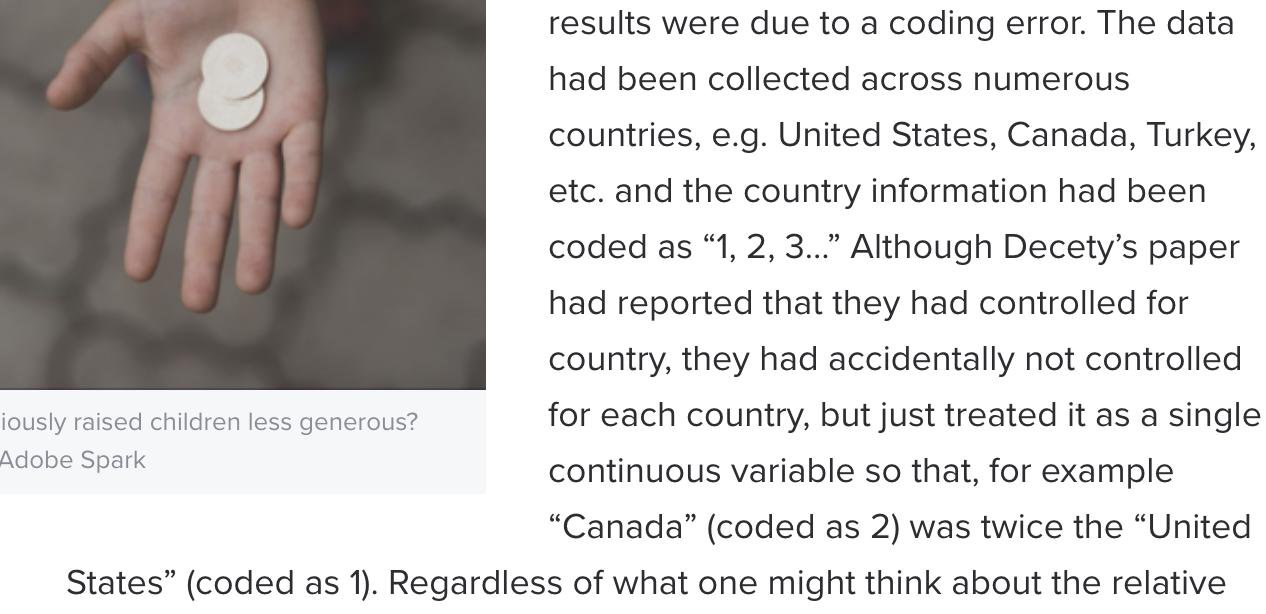Lab 05: Multiple regression
1 / 11
Dr. Lucy D'Agostino McGowan
Agenda
- Loading a .csv file
- (Re)coding factor variables
- Lab 05: on your own
2 / 11
Dr. Lucy D'Agostino McGowan
Reading in a .csv file
- So far, the data we've been using has been included in an R package
- To access this data we just run
data("data set") - What if we want to read in other data, for example from a
.csvfile?
3 / 11
Dr. Lucy D'Agostino McGowan
Reading in a .csv file
- So far, the data we've been using has been included in an R package
- To access this data we just run
data("data set") - What if we want to read in other data, for example from a
.csvfile? - enter:
read_csv()
3 / 11
Dr. Lucy D'Agostino McGowan
Reading in a .csv file
- So far, the data we've been using has been included in an R package
- To access this data we just run
data("data set") - What if we want to read in other data, for example from a
.csvfile? - enter:
read_csv() read_csv()is a function from the readr package, which is included when you load the tidyverse
3 / 11
Dr. Lucy D'Agostino McGowan
Reading in a .csv file
- So far, the data we've been using has been included in an R package
- To access this data we just run
data("data set") - What if we want to read in other data, for example from a
.csvfile? - enter:
read_csv() read_csv()is a function from the readr package, which is included when you load the tidyverse- it works like this:
df <- read_csv("the-path-to-your-file.csv")Where df can be whatever you'd like to call your new dataset
3 / 11
Dr. Lucy D'Agostino McGowan
Recoding factor variables
- Sometimes variables come in as numeric, but we want them to be factors

4 / 11
Dr. Lucy D'Agostino McGowan
Recoding factor variables
- This dataset contains data on a sample of 1450 birth records that statistician John Holcomb selected from the North Carolina State Center for Health and Environmental Statistics.
glimpse(NCbirths)## Observations: 1,450## Variables: 15## $ ID <int> 1, 2, 3, 4, 5, 6, 7, 8, 9, 10, 11, 12, 13, 14, 15,…## $ Plural <int> 1, 1, 1, 1, 1, 1, 1, 1, 1, 1, 1, 1, 1, 1, 1, 1, 1,…## $ Sex <int> 1, 2, 1, 1, 1, 1, 2, 2, 2, 2, 1, 2, 2, 2, 2, 1, 1,…## $ MomAge <int> 32, 32, 27, 27, 25, 28, 25, 15, 21, 27, 26, 20, 19…## $ Weeks <int> 40, 37, 39, 39, 39, 43, 39, 42, 39, 40, 41, 41, 40…## $ Marital <int> 1, 1, 1, 1, 1, 1, 1, 2, 1, 2, 1, 2, 1, 2, 2, 1, 1,…## $ RaceMom <int> 1, 1, 1, 1, 1, 1, 1, 1, 1, 1, 1, 1, 1, 5, 1, 5, 1,…## $ HispMom <fct> N, N, N, N, N, N, N, N, N, N, N, N, N, P, N, M, N,…## $ Gained <int> 38, 34, 12, 15, 32, 32, 75, 25, 28, 37, 45, 52, 26…## $ Smoke <int> 0, 0, 0, 0, 0, 0, 0, 0, 0, 0, 0, 1, 1, 1, 0, 0, 1,…## $ BirthWeightOz <int> 111, 116, 138, 136, 121, 117, 143, 113, 120, 124, …## $ BirthWeightGm <dbl> 3146.85, 3288.60, 3912.30, 3855.60, 3430.35, 3316.…## $ Low <int> 0, 0, 0, 0, 0, 0, 0, 0, 0, 0, 0, 0, 0, 1, 0, 0, 0,…## $ Premie <int> 0, 0, 0, 0, 0, 0, 0, 0, 0, 0, 0, 0, 0, 1, 0, 0, 0,…## $ MomRace <fct> white, white, white, white, white, white, white, w…5 / 11
Dr. Lucy D'Agostino McGowan
Recoding factor variables
lm(BirthWeightOz ~ RaceMom, data = NCbirths)## ## Call:## lm(formula = BirthWeightOz ~ RaceMom, data = NCbirths)## ## Coefficients:## (Intercept) RaceMom ## 116.27732 -0.016246 / 11
Dr. Lucy D'Agostino McGowan
Recoding factor variables
NCbirths <- NCbirths %>% mutate( RaceMom = recode_factor( RaceMom, `1` = "white", `2` = "black", `3` = "American Indian", `4` = "Chinese", `5` = "Japanese", `6` = "Hawaiian", `7` = "Filipino", `8` = "Other Asian or Pacific Islander" ) )7 / 11
Dr. Lucy D'Agostino McGowan
Recoding factor variables
lm(BirthWeightOz ~ RaceMom, data = NCbirths)## ## Call:## lm(formula = BirthWeightOz ~ RaceMom, data = NCbirths)## ## Coefficients:## (Intercept) ## 117.8720 ## RaceMomblack ## -7.3087 ## RaceMomAmerican Indian ## -2.5538 ## RaceMomChinese ## 8.1280 ## RaceMomJapanese ## 0.6463 ## RaceMomFilipino ## -20.8720 ## RaceMomOther Asian or Pacific Islander ## 1.12808 / 11
Dr. Lucy D'Agostino McGowan
Recoding factor variables
lm(BirthWeightOz ~ RaceMom, data = NCbirths)## ## Call:## lm(formula = BirthWeightOz ~ RaceMom, data = NCbirths)## ## Coefficients:## (Intercept) ## 117.8720 ## RaceMomblack ## -7.3087 ## RaceMomAmerican Indian ## -2.5538 ## RaceMomChinese ## 8.1280 ## RaceMomJapanese ## 0.6463 ## RaceMomFilipino ## -20.8720 ## RaceMomOther Asian or Pacific Islander ## 1.1280- What is the referent category?
8 / 11
Dr. Lucy D'Agostino McGowan
Recoding factor variables
lm(BirthWeightOz ~ RaceMom, data = NCbirths)## ## Call:## lm(formula = BirthWeightOz ~ RaceMom, data = NCbirths)## ## Coefficients:## (Intercept) ## 117.8720 ## RaceMomblack ## -7.3087 ## RaceMomAmerican Indian ## -2.5538 ## RaceMomChinese ## 8.1280 ## RaceMomJapanese ## 0.6463 ## RaceMomFilipino ## -20.8720 ## RaceMomOther Asian or Pacific Islander ## 1.1280- What is the referent category?
- What if I wanted to change that?
8 / 11
Dr. Lucy D'Agostino McGowan
Recoding factor variables
new_levels <- c("American Indian", "white", "black", "Chinese", "Japanese", "Filipino", "Other Asian or Pacific Islander")NCbirths <- NCbirths %>% mutate( RaceMom = fct_relevel(RaceMom, new_levels) )9 / 11
Dr. Lucy D'Agostino McGowan
Recoding factor variables
- Sometimes variables come in as numeric, but we want them to be factors

10 / 11
Dr. Lucy D'Agostino McGowan
Open Lab 05: multiple regression in RStudio
11 / 11